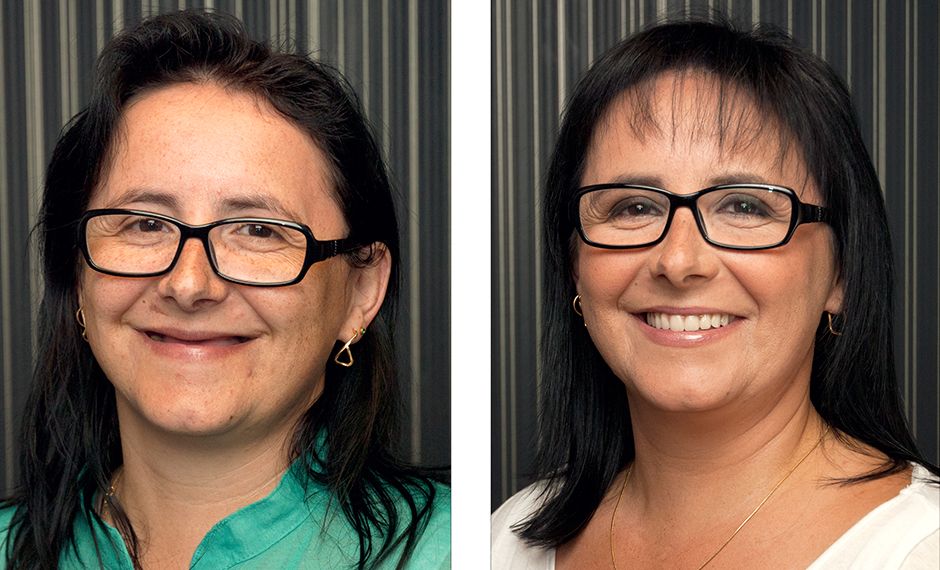
Medicare Dental Implants

Replace missing, failing or loose teeth with secure dental implants. Dr. Christopher Pottorff can replace your missing tooth with a natural-looking, beautiful new one.
No need to live with missing teeth. Dental implants have a 95% success rate and are the preferred solution to missing teeth. You’ll be able to smile as high as you want! Reserve your complimentary consult:
Love your smile again!
Advantages of Dental Implants:
- Acts and looks like a natural tooth
- Comfortable and stable fit
- Ability to eat all foods
- Won’t get cavities
- Easy to care for with regular brushing, flossing and dental visits
- Prevents shifting of other teeth or changes to your face shape
- Matches your natural teeth color


About Dr. Pottorff
Located in Algonquin, Illinois, Advanced Dental & Implant Care operates under Christopher Pottorff, DMD, and an Associate Fellow of the American Academy of Implant Dentistry. Dr. Pottorff earned his degree from the Southern Illinois School of Dental Medicine in 1998 and completed postgraduate implant training in 2000 through the American Academy of Implant Dentists in Atlanta, Georgia.
Although located in Algonquin, Illinois, Dr. Pottorff also sees patients in the surrounding communities of Huntley, South Elgin, Elgin, Barrington, West Dundee, Dundee, Lake in the Hills Carpentersville, Gilberts, Hampshire, Woodstock, Crystal Lake, and Cary, for 12 years.
Dr. Pottorff can restore your ability to eat, chew, smile, and talk with confidence. Call today.
Read What Our Patients Say!
 Having had a bridge for many years that was failing, I knew I was going to need some implants. After scheduling an appointment it wasn’t long till I had a full procedure plan and cost breakdown right in front of me. They explained all the numbers, what needed to be done clearly and made sure that I had all the information to make my decision to continue or pursue a different option. There was no pressure at all.
Having had a bridge for many years that was failing, I knew I was going to need some implants. After scheduling an appointment it wasn’t long till I had a full procedure plan and cost breakdown right in front of me. They explained all the numbers, what needed to be done clearly and made sure that I had all the information to make my decision to continue or pursue a different option. There was no pressure at all.
I later started down the road of getting 2 implants. The actual process of getting the implant was very easy. Minimal discomfort. Overall not too big of a deal. I have 2 new implants now that feel just like my other teeth. The color is perfectly matched and no one is the wiser.
The entire staff was extremely helpful and even after the procedure, I continue to use them as my primary dentist for cleanings. I’ve never had any insurance issues with them and even when my insurance company was being a pain, they helped get everything straightened out.
I’ve very happy with the service they provide and don’t see myself going anywhere else. I’d highly recommend giving them a try! – Justin
MEDICARE & FINANCING PLANS
Common Medicare-Related Questions
Our office is a certified Medicare provider. So what does Medicare cover, and how can it benefit you? Read on for answers.
Medicare does not cover “dental issues.” It will not pay benefits towards anything tooth-related (such as fillings, extractions, dentures, etc.). But it DOES cover medically necessary oral surgery that is needed due to jaw inflammation, infection, resorption of bone, and inability to chew food.
What is Medicare?
Medicare is health insurance that provides benefits for patients over the age of 65 who have a “medical necessity.” If you have a condition that, if left untreated, would worsen and impact your well-being, then this condition may be covered, in part, by Medicare insurance. This can include major oral surgery services. There are conditions of coverage and exclusions, and each patient must be evaluated individually to find out if they have a condition that meets “medical necessity” requirements.
Who can use their Medicare insurance for major dental services?
If you have Medicare insurance Part B and a condition deemed a medical necessity, you may be eligible to have part of your oral surgery and dental implant treatment paid through Medicare. We have many patients who take advantage of this. There are multiple Medicare insurance plans in Illinois, and not every plan will pay for dental services. The only way to find whether you have an eligible plan and a condition deemed “medical necessity” is to come to our office for a personal consultation.
If you are covered, what may this mean financially?
Many times these benefits have a major value in lowering your out-of-pocket expense. Medicare won’t cover all of the fees needed for treatment, but with specific conditions, it’s not unusual to have 20-40% of fees paid –especially if you have a good supplemental policy. For some conditions, this translates to up to $6,000-8,000 per arch for oral surgery and implant treatment.
How do I determine which Medicare plan I have and whether I have a condition deemed a medical necessity?
To see if you qualify for a medical necessity or to check for oral disease, which will affect your long-term health and well-being, contact our office for an in-person consultation. This consultation cannot be done by phone. To schedule a consultation, call 847-854-1200
What if you find that my Medicare plan excludes dental services?
Annually, you have the right to change Medicare plans. We will advise you on which plan to switch to so that we can get coverage for you.
How many dentists are credentialed as Medicare providers? Only 1% of dentists in the United States are Medicare providers who are credentialed (certified) to treat Medicare patients.
What kinds of medical conditions are considered a medical necessity?
Oral disease is well documented in the medical literature to worsen many other organ diseases. This includes heart disease, where mouth infection can contribute to heart attack, thrombosis (blood clots) leading to stroke, and vascular and valvular infection. Mouth disease adds to the risk of pulmonary (lung) infection and can contribute to serious pneumonia. Patients with COPD are at great risk of pulmonary infections from mouth disease. Patients with diabetes are at great risk of infections in other parts of their body as a result of bacteria from gum disease (pyorrhea). The mouth is the main target of diabetic infection and poor healing. Patients with GERD and other GI issues have many of these problems due to poor diet and not being able to choose healthy food groups for good nutrition. A recent study by the cancer society links colon cancer to periodontal (gum) disease and chronic infections in the mouth.
If you have any of these conditions and major dental disease, you may qualify for medical necessity and have a portion of major dental services covered.
Do teeth play a role in general health?
Teeth in later life are essential for nutrition. Denture patients often become disabled from poor nutrition. Teeth firmly attached to dental implants give patients a better quality of life, even in the late stages of life. Many patients have shared stories of a loved one who would have had a much better quality of life if they had only had better teeth to chew with to contribute to better health.
Other Financing Options
We accept Medicare, CareCredit and Lending Club as financing options.
We accept all major credit cards for payment (Visa, MasterCard, Discover, American Express).
For insurance, we work with most major PPO plans and are in network with the Premier Dental Fee schedule.
We will now also be accepting Medicare as an insurance (not a financing option).

